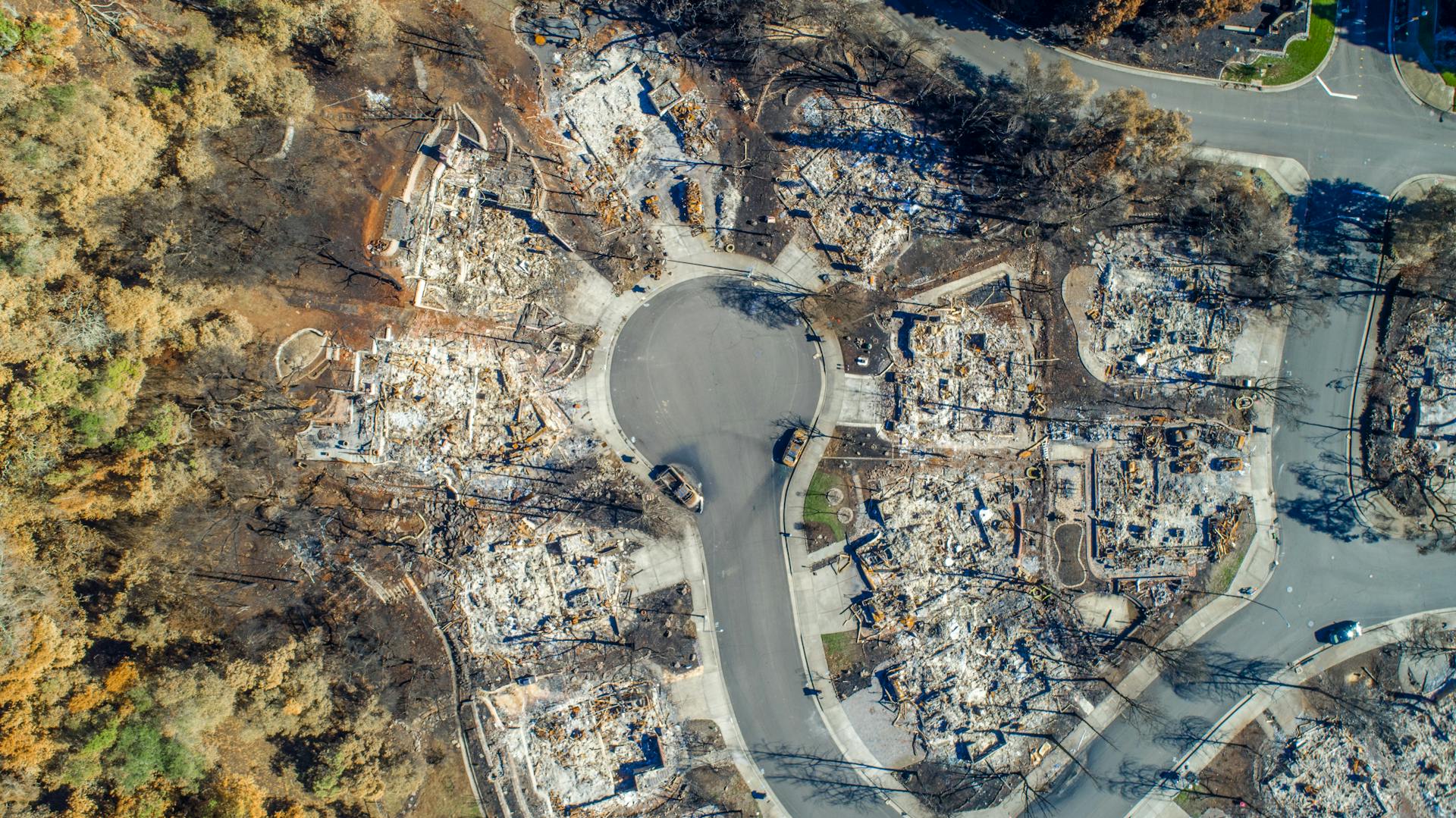Imagine living in a place where the risks of everyday life are steadily increasing. Not because of anything you did, but because the climate is changing, and with it, the stability of your home, your community, and your financial security.
That’s the reality for many of us today.
Climate change isn’t just a looming threat—it’s here, it’s now, and it’s impacting everything from the weather patterns we rely on to the insurance premiums we pay.
Insurance companies—like the firm Co-operators, which was recently featured on the Purpose and Profit podcast—are on the front lines of this shift. They’re seeing firsthand how climate change is driving up risks. Think about the devastating wildfires that swept through the British Columbia city of Lytton in 2021. The entire city was almost completely wiped off the map.
It’s events like this that are pushing insurance premiums higher and higher, as companies try to cover the growing costs of these disasters.
But here’s the catch: there’s only so far premiums can rise before they become unsustainable—both for the insurance company and for the customers who need that protection. There’s a limit to how much people can pay before insurance becomes out of reach, leaving them vulnerable to the very risks they’re trying to guard against. It’s a precarious balancing act, one that threatens the financial security of entire communities.
Wildfires are a main reason we’ve seen major insurers pull back from California’s homeowners market.
This is where Co-operators is stepping in with a fresh, innovative approach. Instead of just raising premiums and hoping for the best, they’re looking at the bigger picture. They understand that the real solution isn’t just about managing risk; it’s about reducing it at its source. And that’s why they’re leveraging the investment side of their business to make communities more resilient to climate change.
Think about that for a moment.
What Co-operators is doing is nothing short of revolutionary. They’re taking the profits from their investments and channeling them into initiatives that strengthen communities against the impacts of climate change. This could mean investing in better infrastructure to withstand severe weather, supporting sustainable practices that reduce a community’s carbon footprint, or funding programs that educate and prepare people for the realities of a changing climate.
The goal is clear: by making communities stronger and more resilient, the risks—and therefore the costs—of insuring those communities go down. It’s a win-win situation. Insurance premiums can stabilize, keeping coverage affordable for everyone, while communities themselves become better equipped to handle the challenges ahead.
What’s really remarkable about this approach is how holistic it is. Co-operators isn’t just thinking about their bottom line; they’re thinking about the long-term well-being of the people and places they serve. They’re proving that you can’t separate financial security from environmental sustainability—that the two are deeply interconnected.
They are committed to supporting their purpose: creating financial security for Canadians and their communities. And they are evolving their business with this purpose at the heart of their strategy.
In a way, their approach reflects a broader truth about the world we live in today. The challenges we face are complex, and they require equally complex solutions. We can’t just throw money at a problem and hope it goes away. We need to be smart, innovative, and proactive in how we address these issues.
Co-operators is showing us a path forward, one that doesn’t rely on quick fixes or short-term thinking. Real change happens when we take a step back, look at the whole picture, and use all the tools at our disposal to create a safer, more resilient world for everyone.
That’s a lesson we can all take to heart: thinking big, acting boldly, and always keeping an eye on the long game.
After all, we’re all in this together—and the future we’re building is one we’ll all share.




